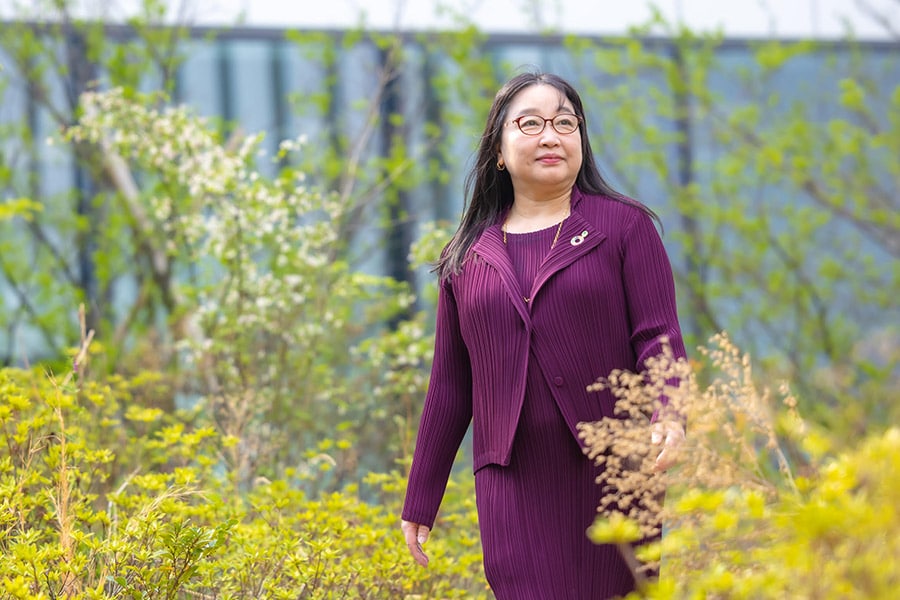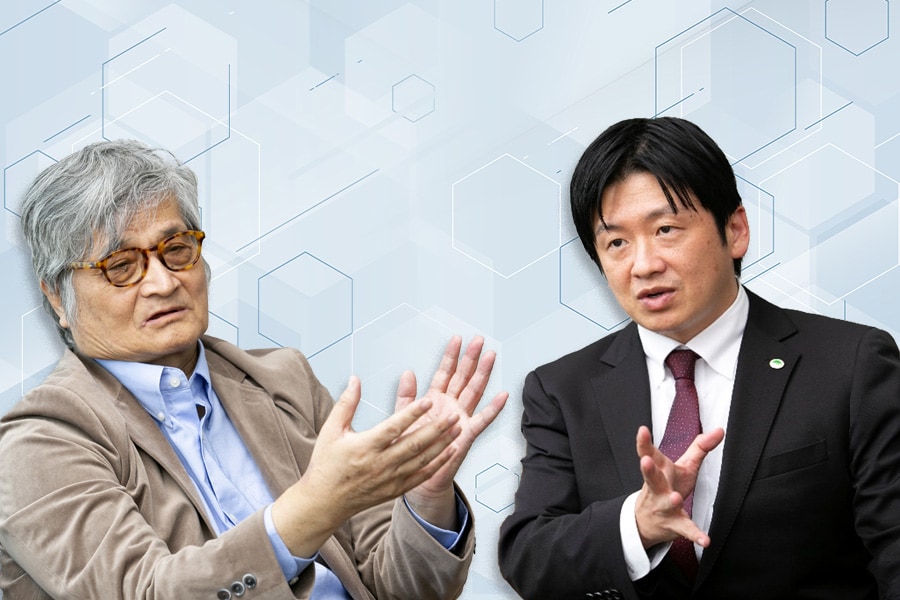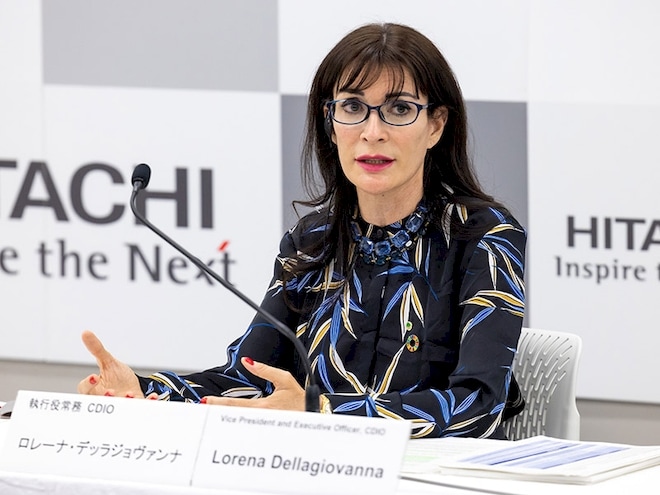[Audrey Tang x Hitachi CEO] Your world will change by changing your perception of things
Jul. 5, 2021
Newspicks
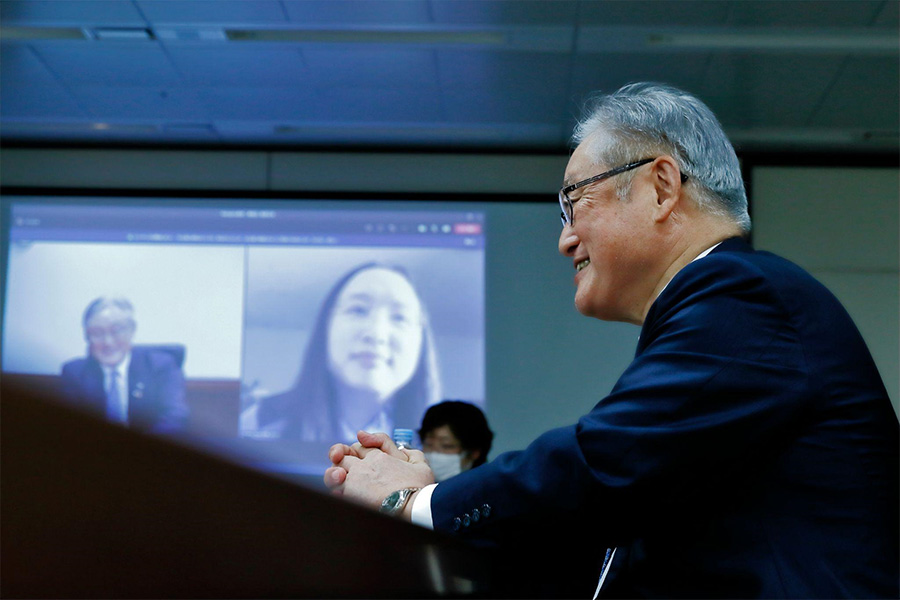
A future with nothing to believe in, nothing to rely on, and nothing to do.
The COVID-19 pandemic has given us an opportunity to clarify a number of social issues, such as climate change and economic disparity. Now that we are under pressure to review the social system itself, what kind of future should we envision, and how should we design society?
“In 2050, we will be forfeiting what we believe in (the future), what we rely on (our country) and what we do (our labor). These will be the problems and social issues that we face.”
These are the words of Toshiaki Higashihara, Representative Executive Officer, Executive Chairman, President & CEO and Director of Hitachi, Ltd. The “Crisis 5.0” collaborative project between Hitachi and Kyoto University, which is aimed at exploring social issues for 2050, predicts that this will be the future 30 years from now.
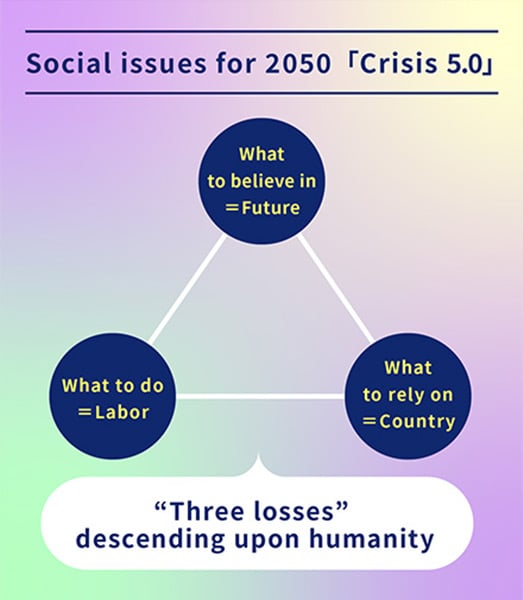
NewsPicks Brand Design conducted an interview between Mr. Higashihara and Audrey Tang, Taiwan's Digital Minister, who believes in thorough transparency and sharing and aims to create a society where no one is left behind. These two thinkers, both attempting to solve social issues using technology, discussed the social model that we should aim for.
Will there be something we can believe in 30 years from now?
Why are you focusing on exploring social issues of 2050, 30 years away?
Higashihara: Right now, humanity is facing the question of how we should aim to establish a sustainable society in a constrained environment and with limited resources. Social issues like climate change and resource scarcity are becoming more varied and complex as time goes by.
In order to solve these increasingly complex social issues, we need a long-term vision of the future. We need to start with an idea of where we’re headed and work our way back to understand what we need to do now.
Through discussions with professors specializing in historical economics, philosophy and social psychology from Kyoto University, we established “Crisis 5.0”, which is a compilation of forecasts of social issues in 2050.
By the year 2050, humans will face three major losses: a future to believe in, a state to rely on, and labor to occupy us. These will be the sources of social issues, and these are the problems we are examining with Crisis 5.0.
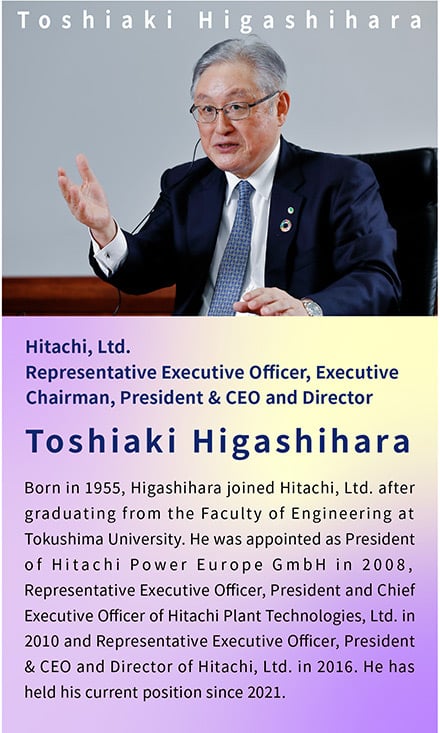
Right now, we can believe the things we see with our own eyes. However, once we are able to experience sight, hearing, and taste with VR, what can we believe? In a world centered on robots and AI, where do we find meaning?
As we continue on this path toward greater economic growth and material well-being, where do we find our purpose, our reason to live? Where can we find reasons to live and the purpose of life as we continue our pursuit of economic growth and material well-being? These may be the sorts of questions that haunt us thirty years down the line.
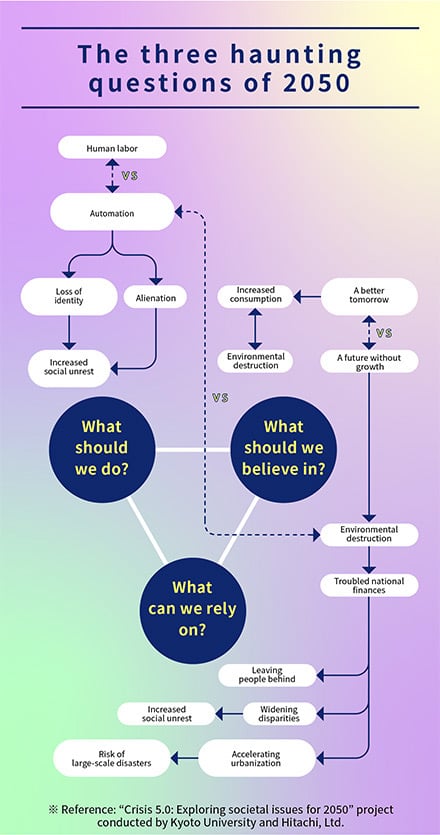
A platform that has both individuality and commonality
Audrey: You raise some very interesting points. I completely agree with your point that we need to take a long term view to get to the heart of our social problems.
If we take a short-term perspective in developing AI, we’ll just be trying to replace human labor. But if we look at it from a longer-term perspective, the goal is really to have humans and AI coexist.
It seems to me that the three concerns predicted by Crisis 5.0 can be summed up with just one question. Will there be anything we can trust 30 years from now?
If we can still believe in ourselves and rely on ourselves thirty years from now, the question of what else we can rely on or what we should do is less important. In other words, the most important implication of Crisis 5.0 is that we need to design a society that doesn’t lose its faith.
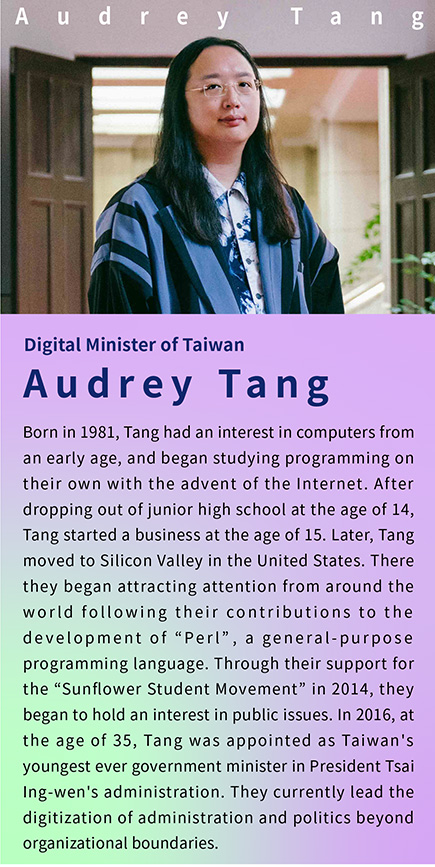
Our modern society relies too much on centralized social structures, concentrating responsibilities and authority in just a few hands. This means some people’s opinions won’t be heard. If our views and opinions don’t have any effect on the society, we lose our faith in both ourselves and in society as a whole. In short, it may be that the problems the Crisis 5.0 points out all come from our society’s reliance on top-down, centralized power structures.
How can we find common ground?
Higashihara: I agree. We need people at the top who are willing to make reforms, but that also leads to an excessive dependence on elites.
That said, a bottom-up approach is not necessarily better. What’s important is that we build our future societies to allow for society and citizens to engage in dialogue on equal terms. We also need to be sharing these common values with people. I think your dialogue with citizens over COVID-19 offers some hints for how we can accomplish this.
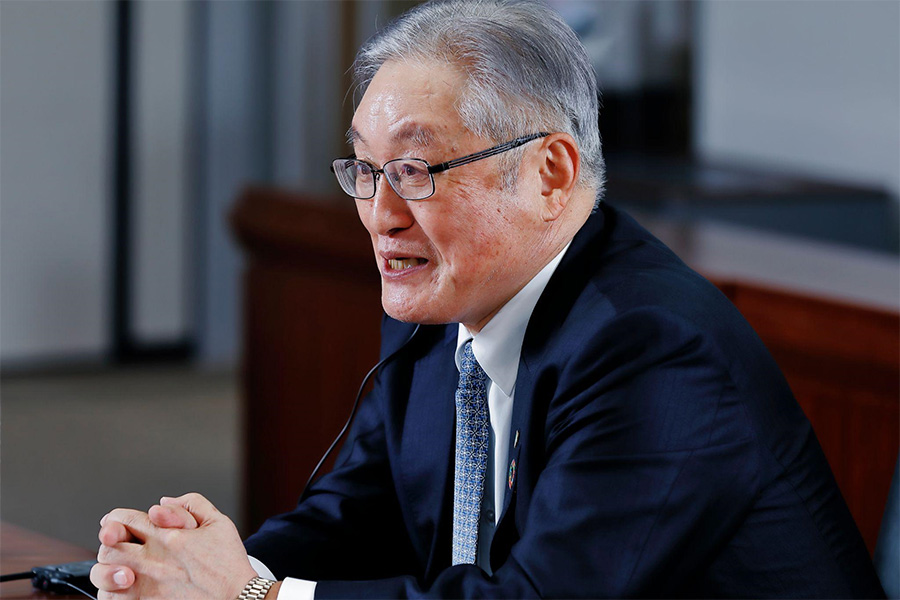
There was an incident in Taiwan where a boy wore a pink mask to school and got made fun of, and this concern was sent to the hotline that was set up as a countermeasure against the novel coronavirus.
Upon hearing this news, the directors of the task force showed up in a press conference wearing pink masks the following day.
As a result, many corporations and individuals changed the backgrounds of their logos and profile pictures to pink, and pink masks started to be more accepted for everyone to wear.
These are the kinds of things you can accomplish if you make an environment that encourages communication between government and citizens and focuses on shared values, rather than putting the blame on particular groups or individuals.
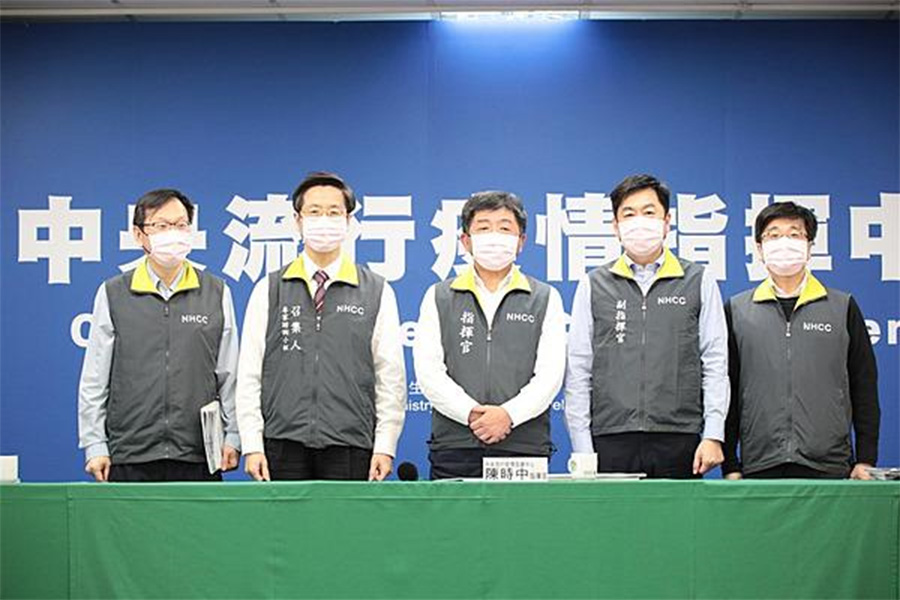
Audrey: Yes. If the government had announced a policy to punish the children who made fun of the boy, the results would have been much different.
It would have kept the children who made fun of the boy away from school and created a cycle of discrimination and revenge.
Confronting an infectious disease is a common value we all share during the COVID-19 pandemic. There’s no point in blaming a particular person.
The pink mask incident served as an opportunity for citizens to participate in building our society. It was a great achievement in moving toward a safer and more tolerant society.
Opportunities for building a society
Higashihara: That’s wonderful. We’re presenting “Imagination 5.0” as a solution to social issues in 2050.
We believe that it’s important for each of us to get involved in solving social issues. We must be willing to use our imagination, think independently about how we want to change things, and take a participatory stance toward society.
It’s important for people to have control over their own skills, to believe in something, have something to rely on, and to find meaning in their work.
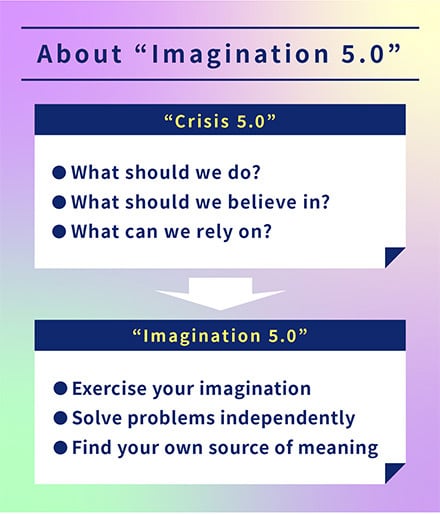
For example, Hitachi is supporting new experiments on a system for 24-hour unmanned driving in the subways systems of Copenhagen, the capital of Denmark. There’s a new mechanism under development, using sensors in stations and on trains to automatically update the time table based on the number of waiting passengers.
The idea is for trains to come every few minutes when there are a lot of people waiting, and have one train arrive every 10 minutes where there aren’t many people waiting. That means that there will be times when the wait is a little longer.
But with a little patience, we’ll be able to transport more people while minimizing energy expenditure by using this system.
That little bit of patience will give people a sense that they are contributing to reducing the impact on the environment. Making people aware of their impacts and influence on social problems is extremely important.

Audrey: What Hitachi is doing here, pushing technology forward and collaborating with citizens, is exactly the kind of world I’m working toward.
In social innovation, the government is by no means the main focus, and it is not our job to try to determine the direction of citizens’ lives.
What is important is the citizens’ trust. When a government believes in its citizens, the citizens live up to that trust. Policies can only take widespread effect when that kind of mutual trust exists.
“Thorough transparency” is a key point for my political philosophy. Transparency and sharing are very important for creating a sense of trust.
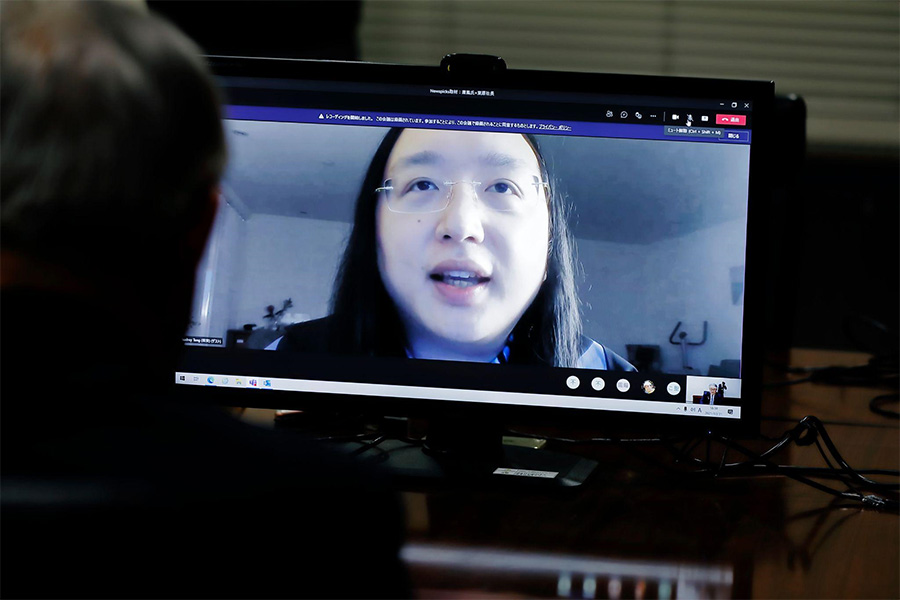
With thorough transparency, you can see the impact of your actions on society and organizations, and that will lead to a sense of trust in yourself and in society.
In the efforts in Copenhagen, people can see that their actions are helping to save the future of the planet by sharing in the reduction of CO2.
By seeing our own positive impacts on others and on society, we’ll be able to feel the significance of our actions, feel more enthusiastic about our contributions, and develop a sense of self-confidence.
When you believe in yourself, you start to believe in the society that you are contributing to and feel like it’s worthy of your trust. On the other hand, knowing that our actions are putting the future of the planet and of humanity at risk gives us motivation for controlling our CO2 emissions.
This kind of thorough transparency is a very important principle for helping citizens and society solve social issues together.
Perceptions can change the world
Is there anything that we as individuals can do to create trust?
Higashihara: It’s very important to care about the people around you and to focus on helping others in order to develop faith in yourself and in society.
Hitachi has valued altruism since the company was founded. In a society based on sharing and coexistence, there’s no doubt that we’ll need to have more understanding for one another.
Looking out for others, working hand in hand with others, these things reaffirm our own reasons for living.
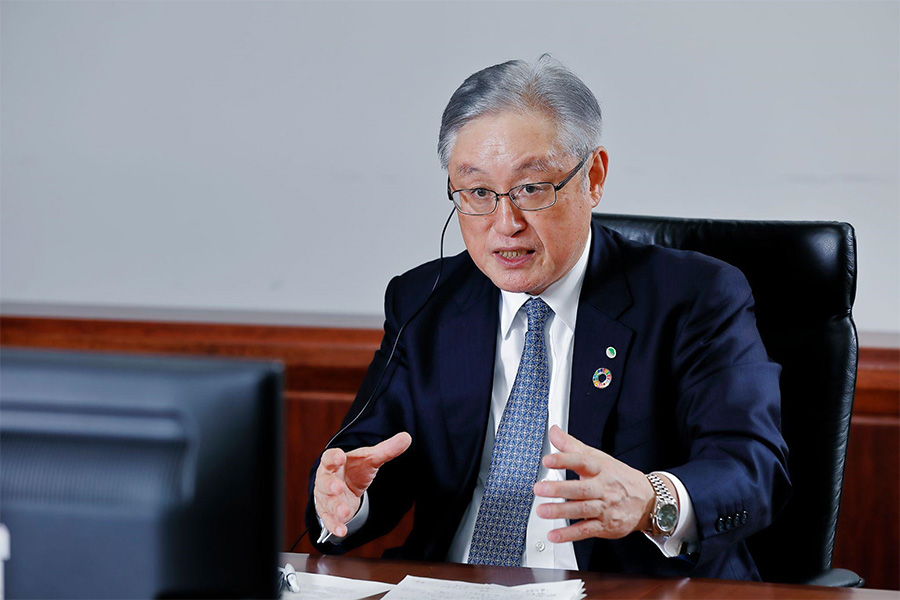
Humans are self-centered by nature. We’re so accustomed to mass production and mass consumption that our desires know no bounds.
It’s easy to say that we should focus on helping others, but to be honest, it isn’t very easy to put that into action in our commercialist, capitalist system.
Instead of a society where some win and others lose, we need to aim for a society where both sides can be happy. We’ll need to overcome our self-centered desires and refocus on altruism, somehow.
Audrey: Altruism is an important concept for me, too. We’re all born altruists. What’s important is whether or not you realize that you are contributing to society.
For example, say you tell someone next to you to wear a mask to prevent them from infecting you with COVID-19. You’re starting from a selfish desire.
But shifting your perspective a bit, having that person wear a mask is also good for people around you. If you change the way you think about what you’re doing for yourself, it may be connected to someone else’s wellbeing as well.
Everyone contributes to others and to society in some way. It all depends on how you think about it and whether you see it or not. Look at what’s in front of you from a different point of view, and you’ll see it differently. Doing this over and over builds up a sense of trust in oneself and in society.
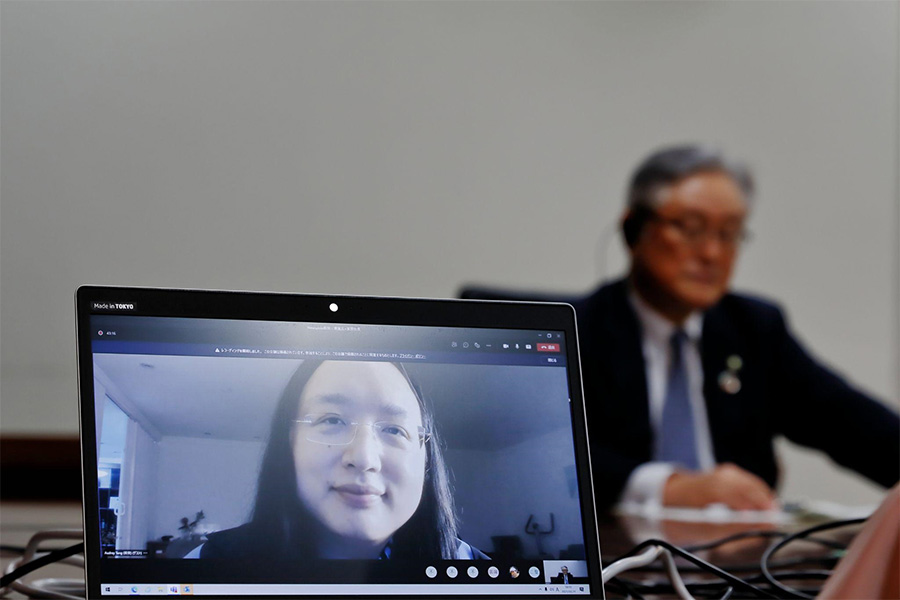
Let’s Power Good
Higashihara: Again, our role is to create a society where every individual can feel that they are naturally involved in solving social issues.
Like the examples mentioned earlier, the pink masks and trains in Copenhagen, we should be able to create a happy society by uniting people towards our common values. Everyone participating in the creation of society will lead to happiness for ourselves and for the world.
Audrey: I also think that people feel true happiness when they wish for another’s happiness and work together with others to make the world a better place. The experience of sharing in altruistic behavior and common values fills our hearts with happiness.
That is why I love Hitachi’s slogan, “Hitachi Social Innovation is POWERING GOOD. Let the World Shine,” which envisions the happiness of people around the world.
Higashihara: We want to create a society full of altruists. Hitachi’s slogan, “Hitachi Social Innovation is POWERING GOOD. Let the World Shine,” is a message that expresses our corporate stance to do our best with our customers and partners to achieve good things that people around the world want.
Hitachi was founded in 1910, and starting with manufacturing, has created social innovations for many years under our corporate philosophy of “contributing to society through the development of superior independent technologies and products.”
Solving social issues and contributing to the development of society is in our DNA. We want to make Hitachi the top contributor to society by 2050. To do that, we’ll need the help of many people, including our customers and partners.
I would be grateful if you could help us toward reaching the common goal of a sustainable society.
Audrey: Gladly. I'm looking forward to the future. Let's cooperate together as partners aiming for social innovation.
Finally, I’d like to offer words of prayer. I pray for your peace of mind and long life.
Once the pandemic is over, I look forward to seeing you in person.
-
*Interview date: March 2021. The contents of the profiles are current as of May 20, 2021.

